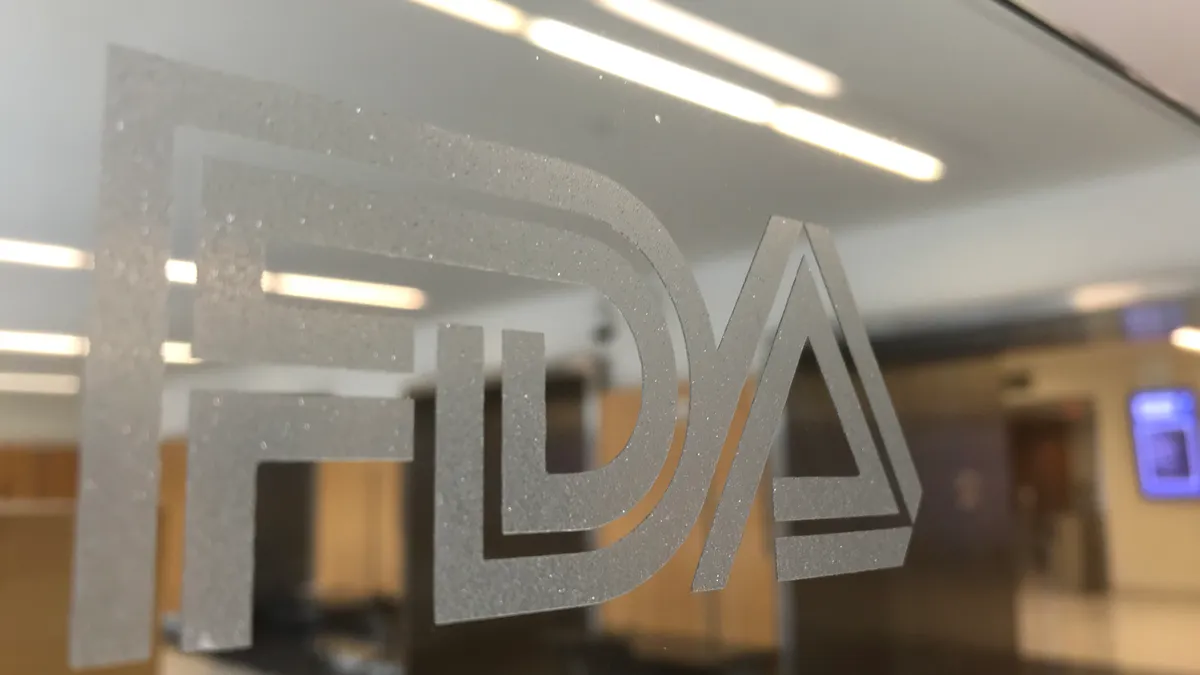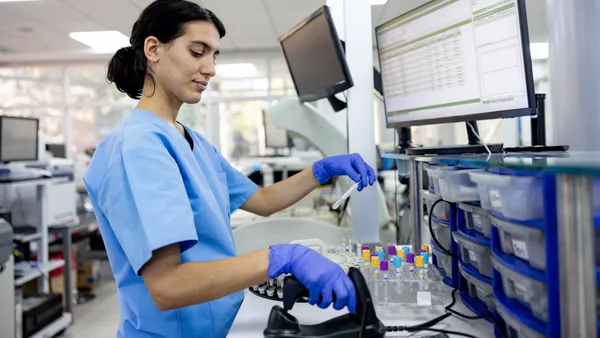Dive Brief:
- A software that integrates with ultrasound devices and uses artificial intelligence to help medical professionals of various skill levels conduct imaging has been selected by FDA for breakthrough device designation.
- Regulators awarded the status to Bay Labs, which is rebranding as Caption Health. CEO Andy Page was a board member and president at 23andMe between 2013 and 2017, then served as CFO at Livongo between 2017 and 2018.
- The technology — designed to offer guidance on how to carry out an ultrasound, as well as automated interpretation of images and ability to assess their quality — was put to the test in a pivotal study developed with FDA wherein medical professionals without specialized echocardiography training used the Caption system to take ultrasound images. Full results from the study are expected to be published early next year, the company said Tuesday.
Dive Insight:
Ultrasounds, like other forms of diagnostic imaging being disrupted by artificial intelligence, has seen attempts at modernization from companies like Butterfly Network, which has created a handheld rather than a cart-based device, aiming to increase the portability and affordability of ultrasound technology.
Similarly, Bay Labs, now doing business as Caption Health, is attempting to improve accessibility of ultrasounds by reducing the need for a highly trained medical imaging professional. It says its goal is to allow for specialty diagnostics at the point of care, enabling acquisition and interpretation of ultrasounds in every patient exam, regardless of a healthcare provider's ability.
The company is calling its now breakthrough-designated software Caption Guidance, which it said will be packaged with compatible ultrasound devices and marketed as Caption AI.
The company's study, carried out at Northwestern Medicine and Minneapolis Heart Institute, put the technology to the test among eight registered nurses without cardiac ultrasound experience.
The company defined success as having more than 80% of the exams be of high enough quality to allow for specific clinical assessments. Across four types of visual assessments (of left ventricular size, left ventricular function, right ventricular size and pericardial effusion), sufficient quality of the assessments was confirmed by a panel of cardiologists in varying rates, exceeding 90% across all cases.
Principal investigator Akhil Narang, a cardiologist at Northwestern Medicine, called the top-line results "very promising" in the announcement Tuesday, and said the technology "offers the potential to empower more healthcare providers to perform ultrasound, including nurses, who are often the first point of care for patients."











